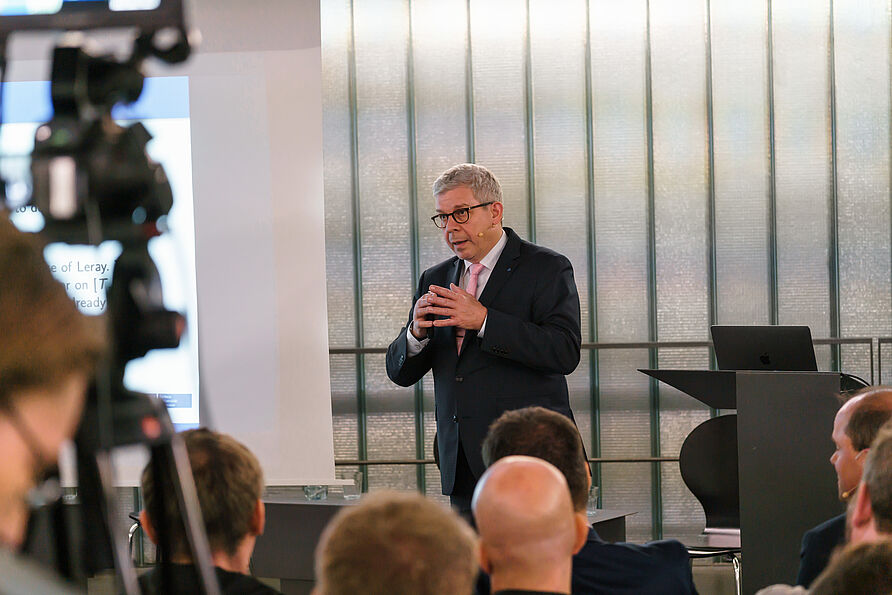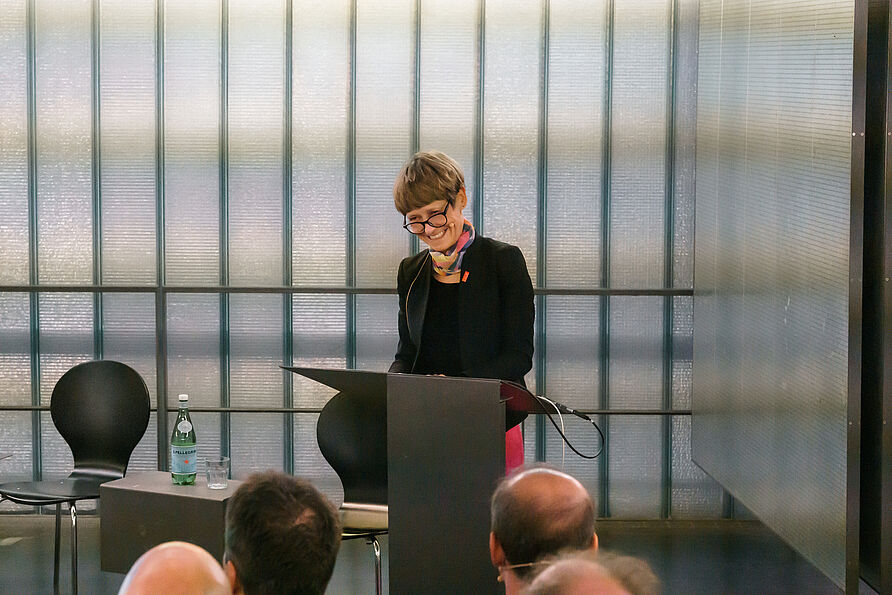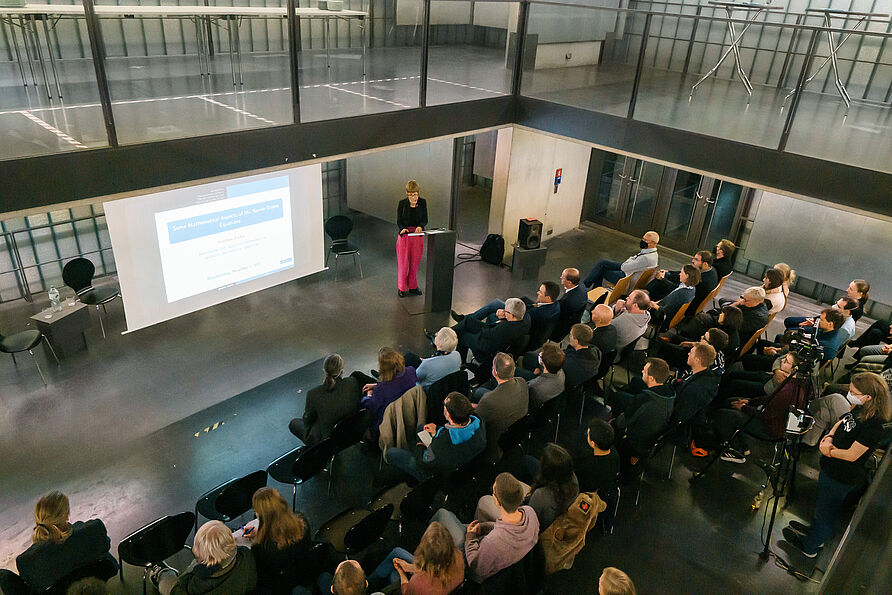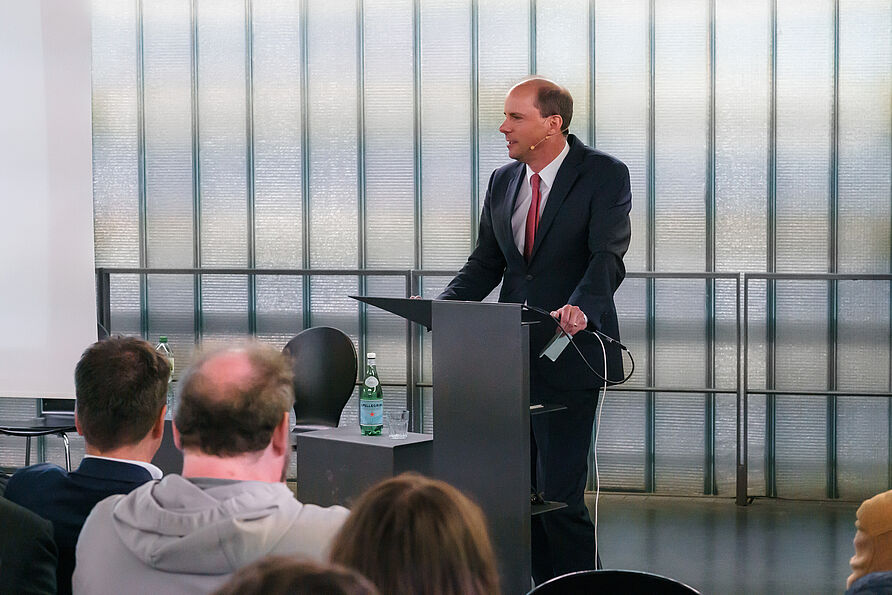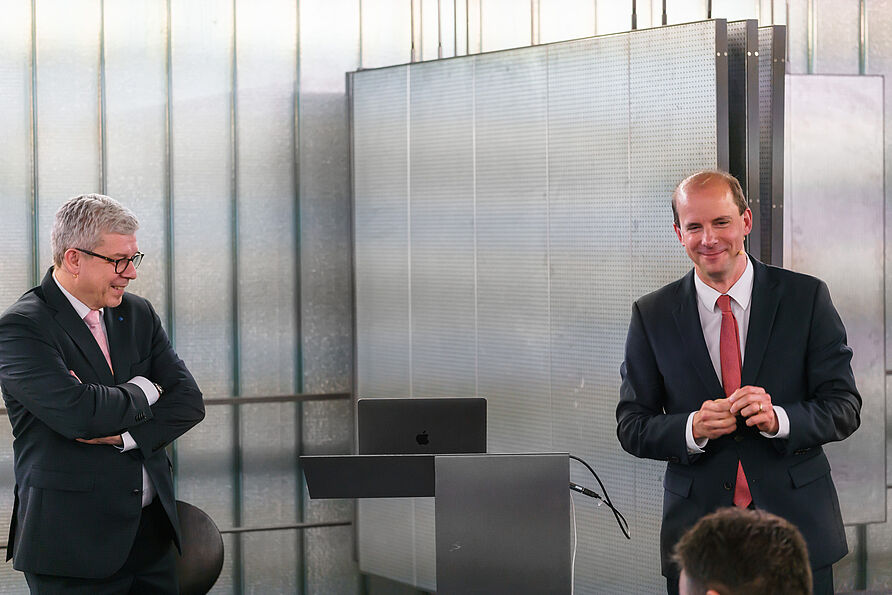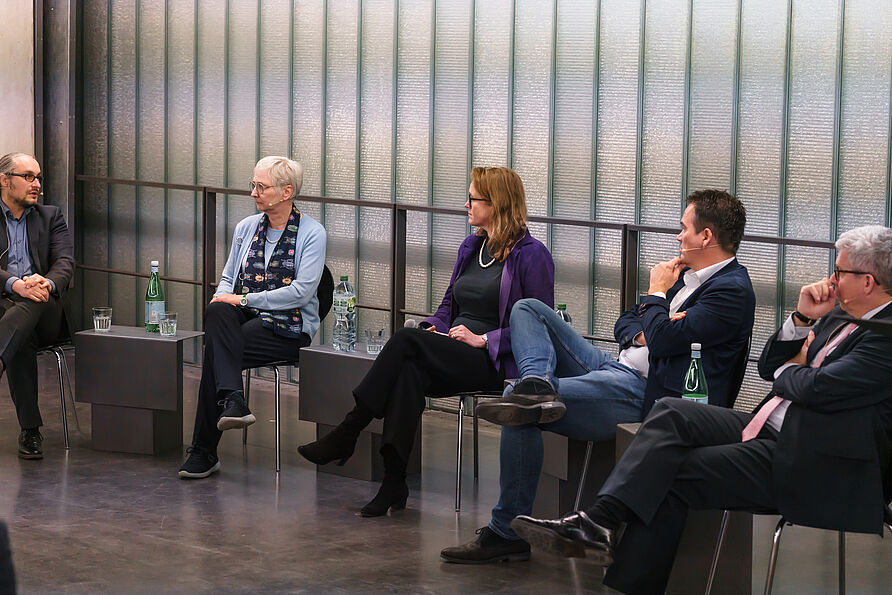Nevertheless, the Navier-Stokes equations are the gold standard to describe the flow of viscous fluids and gases. However, of what quality is this mathematical model? We do not know (yet). The answer, however, will not be found in a wind tunnel, but with paper and pencil.
The Leibniz University Hannover and the Technical University of Braunschweig invited the public to the "Architekturpavillon" (architecture pavilion) of the TU Braunschweig on November 1, 2022, to discover this millennium problem of mathematics. The event was part of the nationwide event series "The 7 Greatest Adventures in Mathematics". Initiators of the event series are "Die Junge Akademie" and the "Deutsche Mathematiker-Vereinigung" (German Mathematical Society). The series of events is under the patronage of the Federal Minister of Education and Research Bettina Stark-Watzinger.
After a greeting by the President of the TU Braunschweig, Prof. Dr. Angela Ittel, and an introduction to the series "The 7 Greatest Adventures in Mathematics" by Prof. Dr. Sebastian Stiller (TU Braunschweig), the general education lecture "Einige mathematische Aspekte der Navier-Stokesschen Gleichungen" ("Some Mathematical Aspects of the Navier-Stokes Equations") by Prof. Dr. Joachim Escher (Leibniz University Hannover) followed.
In the subsequent panel discussion "Warum auf den Gipfel? Ein Gespräch über Mathematik zwischen Grundlagenforschung und Anwendungsmächtigkeit" ("Why go to the summit? A Conversation on Mathematics between Basic Research and Application Power"), Prof. Dr. Joachim Escher (LU Hannover, Vice President of the German Mathematical Society), Prof. Dr. Jens Friedrichs (TU Braunschweig, Speaker of the Cluster of Excellence SE2A), Prof. Dr. Dorothea Wagner (KIT, Chairwoman of the Science Council), and Prof. Dr. Timo de Wolff (TU Braunschweig, Speaker of "Die Junge Akademie") exchanged views. Cornelia Lossau was the moderator.
At the end of the evening, there was a reception that provided an opportunity for further exchange.
For those interested, a public, general education lecture on applications of the Navier-Stokes equations will be held next week on Tue, Nov 8, 2022, at 15:00 in lecture hall SN 19.3 (Schleinitzstraße 19, 38106 Braunschweig): Prof. Dr.-Ing. Carsten Schilde (TU Braunschweig) will give a talk on "Wie alles fließt — Die Navier-Stokes-Gleichungen in den Ingenieurwissenschaften" ("How Everything Flows — The Navier-Stokes Equations in Engineering").
An overview of all events in the series can be found at https://7abenteuer.diejungeakademie.de/
The final event will take place on Fri, Nov 18, 2022, starting at 18:00 in Berlin (Berlin-Brandenburgische Akademie der Wissenschaften, Jägerstraße 22/23, 10117 Berlin).

